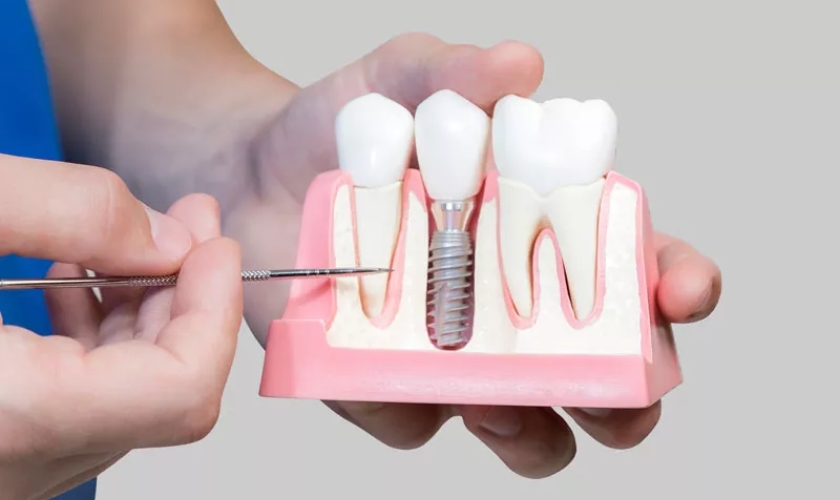Kentwood, MI

The Connection Between Dental Implants And Bone Health

The smile is a universal language, and good oral health is crucial for a confident and healthy life. Dental implants have revolutionized how we approach tooth restoration, offering a long-lasting solution beyond aesthetics. In Kentwood, MI, where smiles are as diverse as their residents, the significance of dental implants in enhancing both form and function cannot be overstated. However, the success of dental implants is intricately linked with a factor often overlooked – bone health. In this comprehensive guide, we will delve into the profound connection between dental implants and bone health, exploring the science behind it and emphasizing the role of a skilled dentist in Kentwood in ensuring seamless integration.
Understanding Dental Implants
Dental implants are prosthetic devices designed to replace missing teeth. Comprising a titanium post surgically placed in the jawbone, an abutment that connects the post to the replacement tooth, and the crown as the visible part, dental implants mimic the natural tooth structure. Unlike traditional dentures or bridges, implants provide a sturdy, durable solution that feels and functions like natural teeth.
The Crucial Role of Bone Health
The success of dental implants hinges on the health and density of the jawbone. When a tooth is lost, the underlying bone can deteriorate over time due to the lack of stimulation from the tooth’s roots. A robust jawbone is vital for providing the necessary support and stability for the implant. Insufficient bone density can lead to implant failure or complications during integration.
Osseointegration
Osseointegration is a term that holds the key to the success of dental implants. It refers to the process where the titanium post fuses with the surrounding bone tissue, essentially becoming a part of the jaw. This integration ensures a strong foundation for the replacement tooth and is a testament to maintaining optimal bone health.
Factors Influencing Osseointegration
Several factors influence the osseointegration process. Smoking, for example, can impede blood flow to the gums and bone, hindering the healing process. Chronic conditions like diabetes may also impact the body’s ability to heal and integrate the implant. A dentist in Kentwood assesses these factors during the treatment planning phase to enhance the chances of successful osseointegration.
The Role of a Dentist in Kentwood, MI
Choosing a qualified dentist is paramount for the success of dental implants. A knowledgeable dentist in Kentwood, MI, thoroughly assesses your oral health and develops a personalized treatment plan addressing specific bone health needs. From bone grafting procedures to advanced implant placement techniques, the dentist’s expertise plays a pivotal role in ensuring the longevity and success of dental implants.
Post-Implant Care
Once the dental implants are in place, proper post-implant care is essential. Regular check-ups with the dentist in Kentwood, MI, are crucial to monitor the integration process and address any emerging issues promptly. Maintaining good oral hygiene, including regular brushing, flossing, and professional cleanings, contributes to the overall health of the implants and the surrounding bone.
In the vibrant city of Kentwood, MI, where dental health meets diversity, understanding the connection between dental implants and bone health is paramount. Dental implants offer a transformative solution to tooth loss, but their success is intricately linked to the foundation provided by the jawbone. A conscientious approach to bone health, coupled with the expertise of a dentist, ensures that your journey toward a radiant and healthy smile is not just a cosmetic enhancement but a testament to the strong connection between dental implants and bone health.




